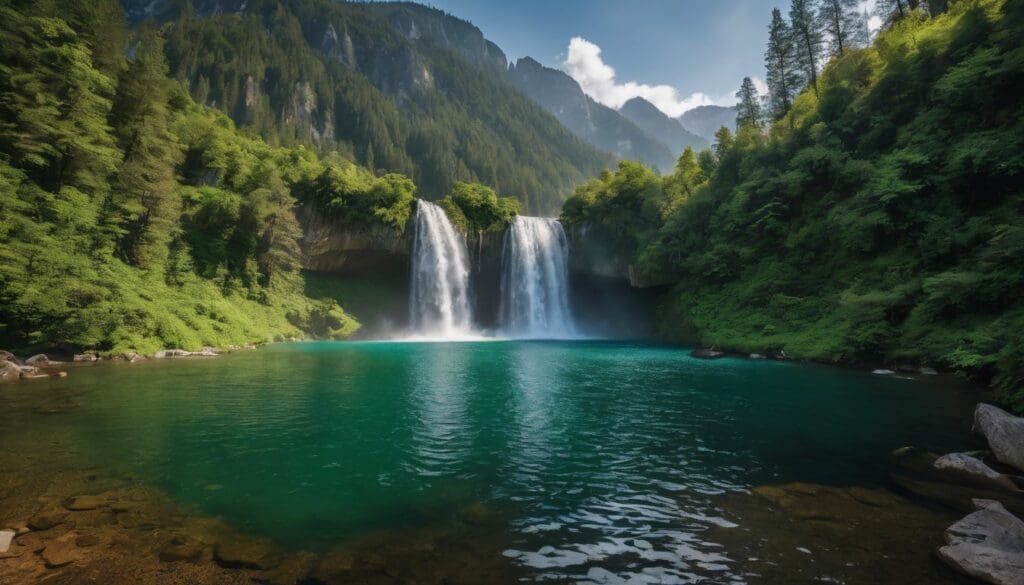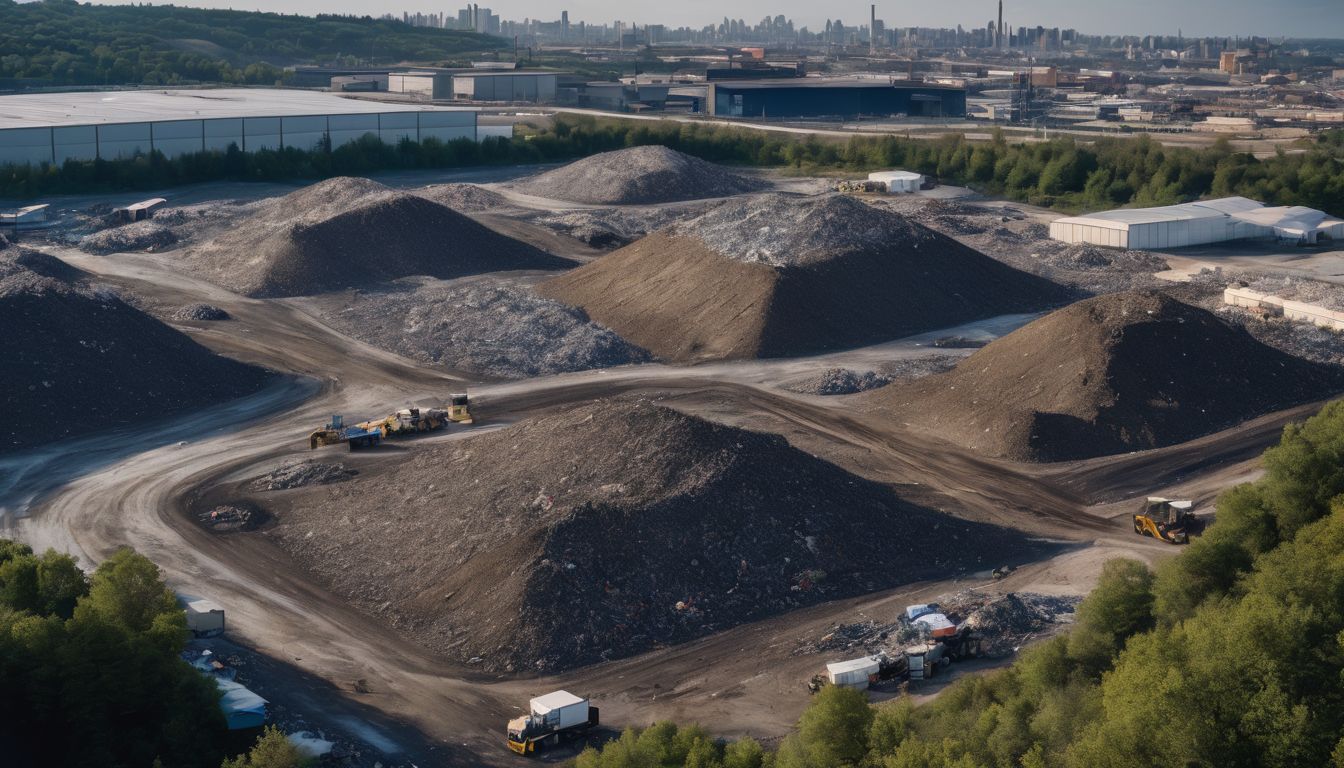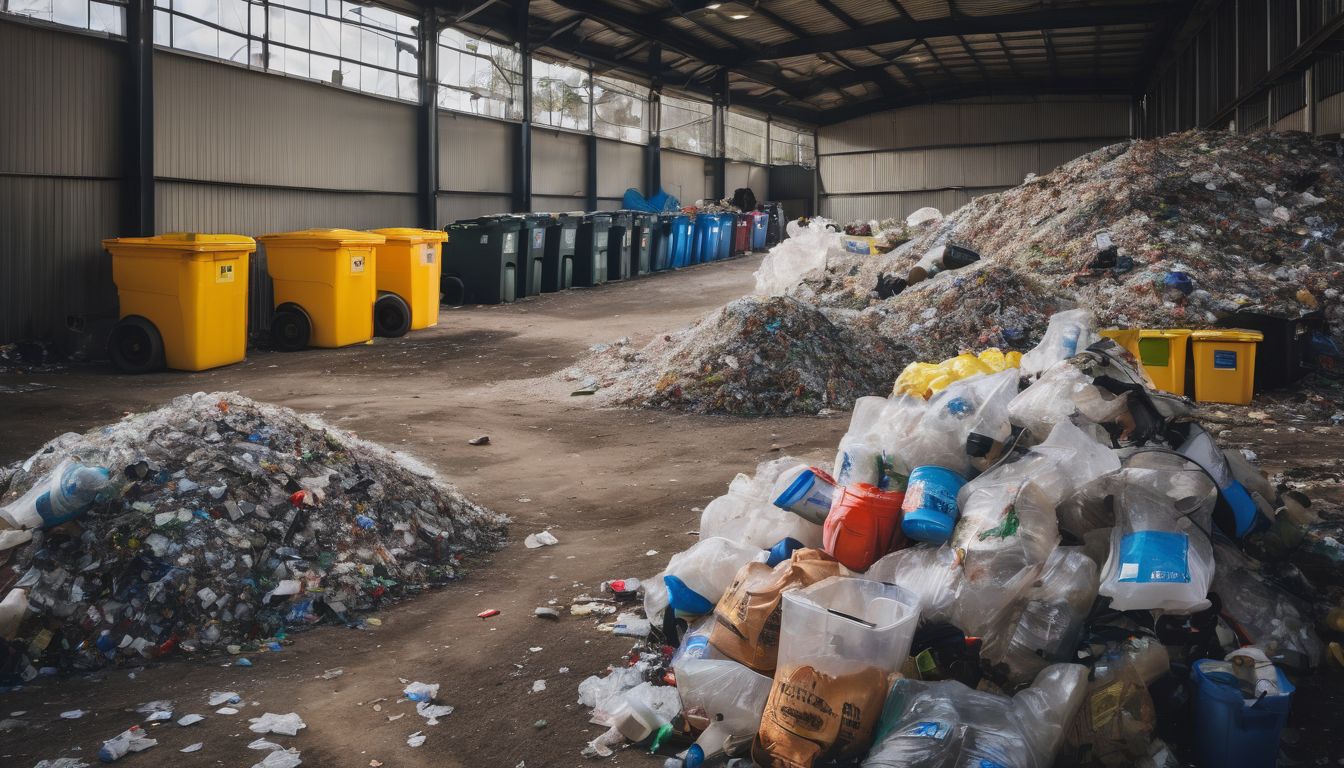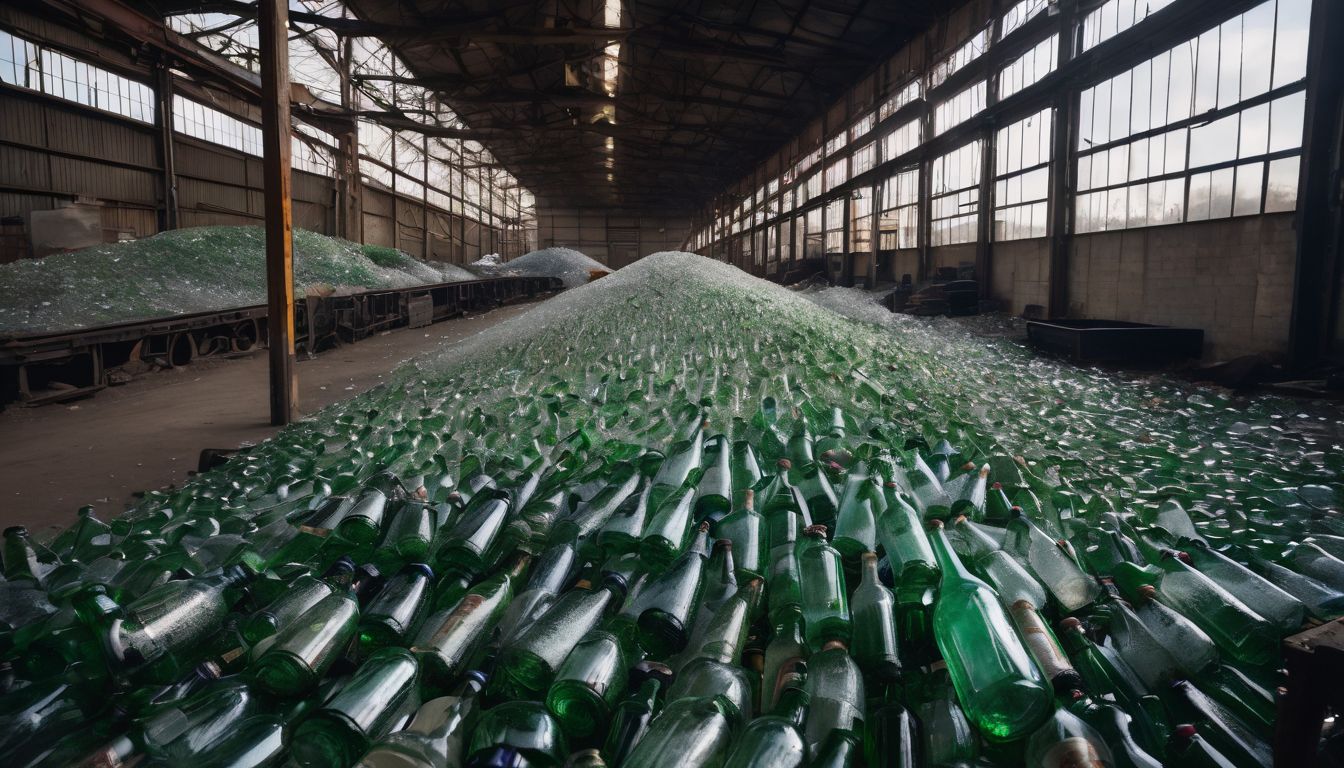Watching the tap run as we brush our teeth, it’s easy to forget how precious water is. Every day, millions of litres are wasted, yet a third of the world faces water scarcity. This blog explores the magic of turning used water into a treasure trove for our future needs and shows you simple ways to be part of this change.
Dive in and make every drop count!
Key Takeaways
- Water recycling turns used water from homes, businesses, and industry into high – quality reclaimed water for irrigation, replenishing aquifers, or industrial use.
- Implementing practices like rainwater harvesting, fixing household leaks and using water-saving fixtures can reduce our reliance on freshwater sources and conserve water.
- By reducing wastewater discharge through advanced filtration systems, we protect natural habitats from pollution and contribute to a sustainable environment.
- Small actions such as using buckets while washing cars during holidays help in conserving significant amounts of water.
- Removing low – head dams allows rivers to flow naturally which enhances wildlife habitats and improves the quality of life for aquatic species.
Water Recycling: What is it and Why is it Important?
Water recycling involves treating wastewater to make it safe and suitable for another use. This process turns water from homes, businesses, and industry into high-quality reclaimed water which can safely irrigate crops, replenish aquifers, or supply industrial processes.
By filtering out impurities and pollutants through advanced wastewater treatment technologies, the cycle of water usage is extended far beyond a single use. Water reclamation not only secures more potable water resources but also protects natural habitats by keeping contaminants away from rivers and wetlands.
The significance of this practice lies in its ability to reduce dependency on existing freshwater sources that are under immense strain due to overuse and climate change. It embodies sustainable water management by conserving precious supplies while simultaneously decreasing the amounts of untreated wastewater released into the environment.
As our hydrologic cycle faces unprecedented challenges, recycling stands as a cost-efficient solution for providing an additional buffer against scarcity without compromising quality.
Moving forward ensures we understand how specific actions contribute tangibly to conservation efforts—let’s delve into the benefits that such practices bring about in our next section.
Benefits of Water Recycling and Reuse
Water recycling and reuse reduce pressure on freshwater sources, decrease wastewater discharge, and protect the environment. It also leads to a reduction in pollutants in waterways and provides a cost-efficient water supply.
Reducing pressure on freshwater sources
To reduce pressure on freshwater sources, we can implement water recycling and conservation practices. By reusing wastewater for non-potable purposes such as irrigation and industrial processes, the demand for fresh water decreases significantly.
This leads to a decrease in the overall strain on natural water supplies, promoting sustainability and ensuring a more reliable future water supply.
Implementing sustainable water use practices also plays a crucial role in reducing the burden on freshwater sources. Through rainwater harvesting and greywater recycling, we can further lessen our reliance on potable water for tasks like gardening and toilet flushing.
Reducing wastewater discharge
By reducing pressure on freshwater sources, we can also minimise wastewater discharge. Treating and recycling water not only conserves this valuable resource but also prevents the pollution of natural water bodies.
Using advanced filtration systems helps remove contaminants from wastewater before it is discharged, significantly reducing its environmental impact.
Conserving and reusing water effectively reduces the strain on ecosystems and contributes to a more sustainable environment. By implementing efficient wastewater treatment methods, we can decrease pollutants in waterways, ensuring a cost-efficient and environmentally friendly approach to our water supply.
Protecting the environment
Water recycling and conservation are crucial in protecting the environment. By reducing pressure on freshwater sources, water recycling plays a vital role in preserving wetlands and maintaining healthy ecosystems.
This reduction in demand also helps to decrease energy consumption and the overall impact of human activities on our planet. Additionally, reusing water aids in the reduction of pollutants in waterways, contributing to a more sustainable and cost-efficient water supply.
Encouraging small actions such as fixing household leaks, reducing holiday water usage, and removing low-head dams can all contribute to protecting the environment through effective water conservation practices.
How Can We Conserve Water?
Fix household leaks, reduce water usage during the holidays, and remove low-head dams to conserve water. Learn more about the importance of water recycling and conservation in our blog!
Fixing household leaks
Fix household leaks by:
- Checking faucets, pipes, and toilets for leaks regularly.
- Repairing any leaks promptly to prevent water wastage.
- Installing water-efficient fixtures, such as low-flow showerheads and toilets, to reduce the likelihood of leaks.
- Using pipe tape or sealant on leaky joints to fix minor leaks.
- Consulting a professional plumber for major leaks or persistent issues in the plumbing system.
Reducing water usage during the holidays
During the holidays, cutting back on water usage can significantly contribute to conservation efforts. You can make a difference by:
- Using a bucket instead of running water while washing your car. This simple switch can save up to 150 gallons of water per use.
- Opting for reusable tableware and cloth napkins during festive gatherings, rather than disposable items.
- Planning meals that require less water – intensive ingredients like meat and dairy products, and opting for locally sourced produce.
- Collecting rainwater for watering plants and outdoor decorations instead of using tap water, saving both resources and money.
- Being mindful of shower times when hosting guests, as shorter showers reduce overall water usage.
Removing low-head dams
Low-head dams are being removed to restore river ecosystems.
The Importance of Water Conservation
Water conservation is crucial for the health of ecosystems and to mitigate water shortages. It also plays a significant role in reducing energy consumption.
Impact on ecosystems
Water recycling and conservation have a significant impact on ecosystems. Conserving water helps maintain the natural balance of rivers, lakes, and wetlands, ensuring habitats for fish, plants, and other wildlife remain intact.
By reducing the demand on freshwater sources through recycling and reusing water, we help sustain healthy aquatic environments. Additionally, wastewater recycling plays a crucial role in protecting biodiversity by maintaining adequate water levels for various species to thrive.
Efforts towards water sustainability also contribute to mitigating the harmful effects of droughts on ecosystems. Conserving water ensures that vital areas like wetlands and estuaries receive enough inflow to support diverse plant and animal life, thus safeguarding their ecological functions.
Mitigating water shortages
Mitigating water shortages is crucial for sustainable water management. Conserving and recycling water helps reduce the strain on freshwater sources, ensuring a more efficient and equitable distribution of this precious resource.
Implementing water conservation measures, such as fixing leaks and reducing usage, significantly lessens the demand for potable water, ultimately mitigating scarcity.
Water efficiency practices are essential in safeguarding against future shortages. By adopting these strategies, we can contribute to a healthier environment while securing an adequate supply of clean water for generations to come.
Reducing energy consumption
Reducing energy consumption is crucial for water conservation and sustainability. By using less hot water, energy demand for water heating decreases, leading to lower greenhouse gas emissions.
Implementing efficient irrigation methods reduces the energy required for pumping and distributing water across agricultural fields.
Conserving water also helps to reduce the energy used in treating and transporting municipal wastewater. Additionally, decreasing reliance on large-scale water infrastructure reduces the energy expended in building, maintaining, and operating such systems.
Conclusion: Small Actions, Big Impact
Conserving water through recycling and reuse is vital for protecting our environment. By reducing pressure on freshwater sources, we can ensure a sustainable water supply for the future.
Taking small steps to fix leaks and reduce usage can make a big impact on water conservation. Every effort counts in safeguarding our precious water resources for generations to come.
FAQs
1. Why is water recycling and conservation important?
Water recycling and conservation are vital because they provide a cost-efficient water supply while decreasing demand on freshwater sources, benefiting the environment.
2. What environmental benefits does water recycling offer?
Water recycling helps protect ecosystems by reducing the need to divert water from rivers and wetlands which leads to a decrease in pollution and conserves natural habitats.
3. Can reusing water really make a difference?
Absolutely! Reusing water means we use less fresh water, which can save precious resources and ensure there’s enough for future generations.
4. How does saving water affect our everyday life?
By being more efficient with our water use, we contribute to securing a sustainable future where everyone has access to clean, safe drinking water without overusing it today.





